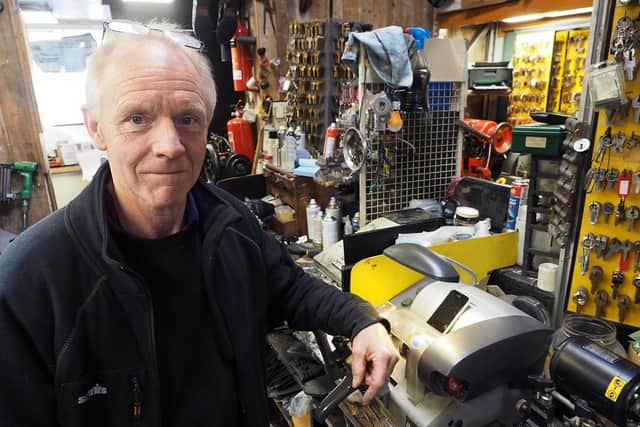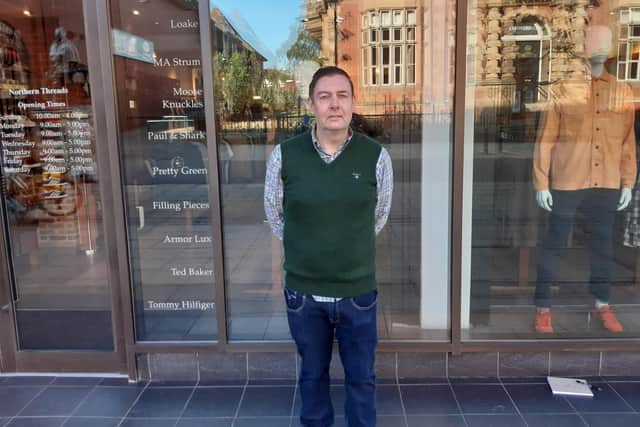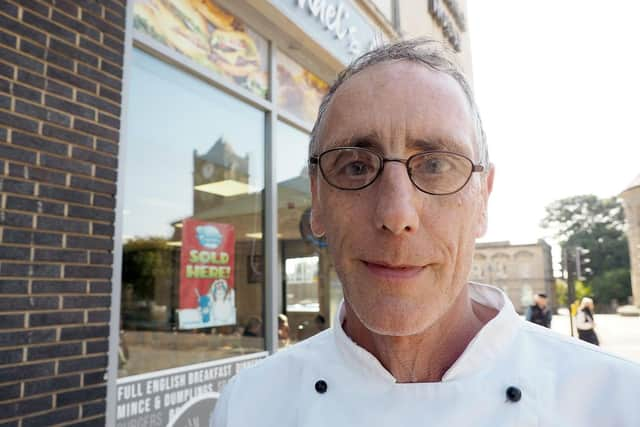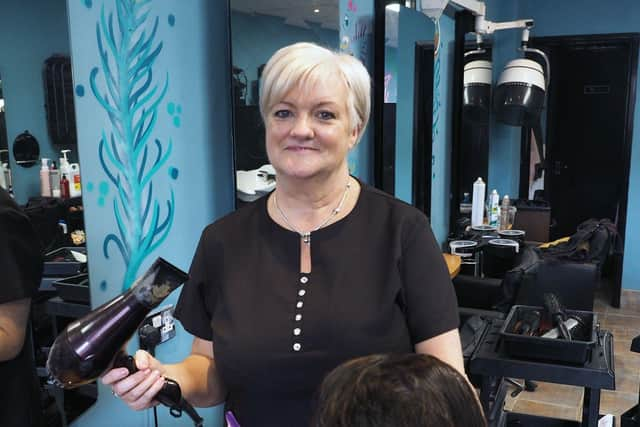Watch as South Shields business owners describe Government's energy price cap as 'a drop in the ocean' and insist 'more needs to be done'
and live on Freeview channel 276
Business Secretary Jacob Rees-Mogg today (September 21) revealed the Government’s support package which will see see businesses on fixed-term energy contracts, agreed on or after April 1, have their prices for electricity capped at £211 per megawatt hour (MWh) and £75 per MWh for gas.
The scheme, which will be implemented from October 1, is estimated to reduce the cost of business energy bills by on average around 50 per cent compared to their projected winter price.
Advertisement
Hide AdAdvertisement
Hide AdWhile the news was welcomed by the owner of Northern Threads clothing shop, Philip Goodfellow, he believes more needs to be done.
Philip, 50, said: “We’ve been here for 17 years and this is the worst period of retail I’ve experienced – worse than the pandemic. I’ve just had the worst two Saturdays of trading I’ve ever known.
"I currently pay £460 per month which was going to rise to about £1,000, but with the cap it looks like it will be around £600. However, this is a drop in the ocean to solving the underlying problem of people being in a position to have money in their pockets to be back out on the high streets.
"I used to have 21 staff and I’m now down to six. I would normally take on extra staff for the Christmas period but I can’t even think about that at the moment. “The Government are making a big thing about capping the cost of energy, but the best way to help local businesses is to reduce VAT to 10 per cent and to lower National Insurance to ensure people have more money in their pockets to spend.”
Advertisement
Hide AdAdvertisement
Hide Ad

It’s a sentiment shared by manager of Michael’s Cafe, Kevin McCarthy, who’s reluctant to pass on the additional energy costs to his customers.
Kevin, 63, said: “My energy bills have trebled, and so while a 50 per cent reduction in the projected rise is good, it still won’t be enough. We had only just put our prices up before energy prices started to rocket.
"We are already not getting the level of footfall in the town that we used to and people just don’t have the money in their pockets and so if we put the prices up again customers won’t be able to afford it – everyone is struggling at the moment.”
Kevin and his staff have been taking measures to reduce their energy consumption.
Advertisement
Hide AdAdvertisement
Hide Ad

He added: “We make a real conscious effort to switch off lights and reduce the use of electrical equipment. At the moment we are only using one bain-marie to keep things heated.”
Co-owner of GL’s Hair Design, Gillian Folan, stressed the rise in energy bills are just one of a multitude of economic challenges currently facing small businesses.
Gillian, 59, said: “The energy cap doesn’t go far enough to provide support. Our energy bills are already 53 per cent higher than they were and we are still recovering from the pandemic.
"The cost of stock has also gone up. We’ve been here for 30 years and we used to have a lot of customers who would come in every week but now get their hair cut monthly. Everyone is struggling and so we can’t put our prices up too much.”
Advertisement
Hide AdAdvertisement
Hide Ad

David Hedley, 62, is part of the family business the Market Cobbler, and is satisfied with the Government’s price cap plan.
He said: “With all the lighting and machinery, electricity is one of our biggest costs. I’m currently paying £3,400 per year, and before the cap this was expected to double. So this cap will make a big difference.
"We are all going to have to pay this back in the end. The costs are going to be colossal and so I think what the Government has proposed is fairly balanced.”
The current cap has initially been introduced for a six month period which is to be reviewed after three months.
Announcing the plan, Business Secretary Jacob Rees-Mogg said: “We have seen an unprecedented rise in energy prices following Putin’s illegal war in Ukraine, which has affected consumers up and down the country and businesses of all sizes.


